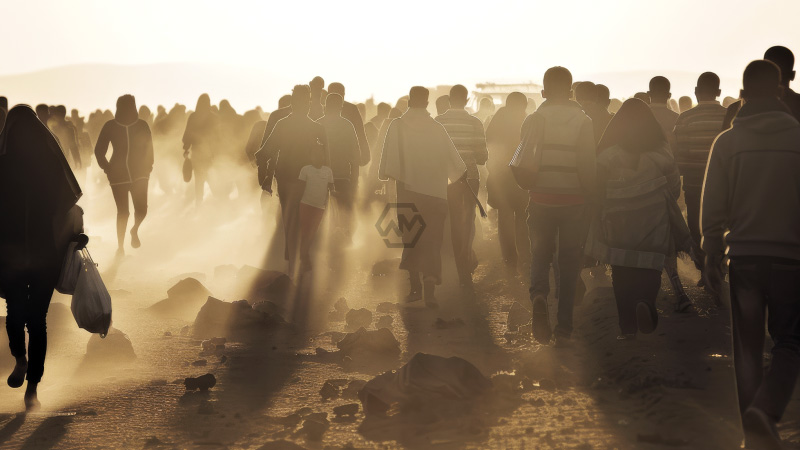- Nearly 800 Palestinians have been killed while seeking aid since late May, the UN reports.
- Most fatalities occurred near US-Israel-backed GHF distribution points.
- UN accuses Israeli forces of violating international humanitarian norms.
The humanitarian situation in Gaza has sharply deteriorated, with the United Nations confirming that nearly 800 Palestinians have been killed while attempting to access food and medical supplies since May 27.
While Israel claims militants use aid seekers as human shields, it has also issued new guidelines to its troops following repeated reports of fatal shootings.
Starved and Targeted: The Human Cost of Aid in Gaza’s Warzone
According to UN human rights spokesperson Ravina Shamdasani, the conditions under which Palestinians are being forced to choose between nourishment and survival represent an unacceptable breach of international humanitarian law. She stated, “People lining up for food and medicine should never be placed in the line of fire.” The UN has called for independent investigations into the killings and has demanded the restoration of full control to impartial aid organizations.
The Gaza Humanitarian Foundation, launched in late May, was intended to serve as an alternative aid delivery channel amid Israel’s blockade. However, its operations have been plagued by reports of disorganization, limited access, and frequent shooting incidents. While the GHF claims to have distributed over 69 million meals, critics argue that its close coordination with Israeli forces compromises its neutrality and effectiveness.
Israeli authorities maintain that Palestinian militants, including Hamas’s Qassam Brigades, are responsible for instigating violence near aid distribution points. The military has also pointed to recent attacks on its armored vehicles in northern Gaza as justification for its continued operations in the area. However, international observers argue that the use of lethal force near humanitarian zones should be thoroughly scrutinized regardless of these claims.
With over two million residents living under siege and famine warnings escalating, Gaza faces a dire future. International pressure is growing on Israel to ensure safe and transparent aid delivery mechanisms. The ceasefire discussions in Qatar may offer a brief pause in the violence, but without concrete humanitarian guarantees, any deal risks being short-lived. For many in Gaza, survival itself has become a dangerous pursuit.
The ongoing crisis in Gaza exposes the devastating consequences of politicized aid and military entanglement. Without urgent intervention and accountability, the line between help and harm remains tragically blurred.
“To deny people their human rights is to challenge their very humanity.” — Nelson Mandela



